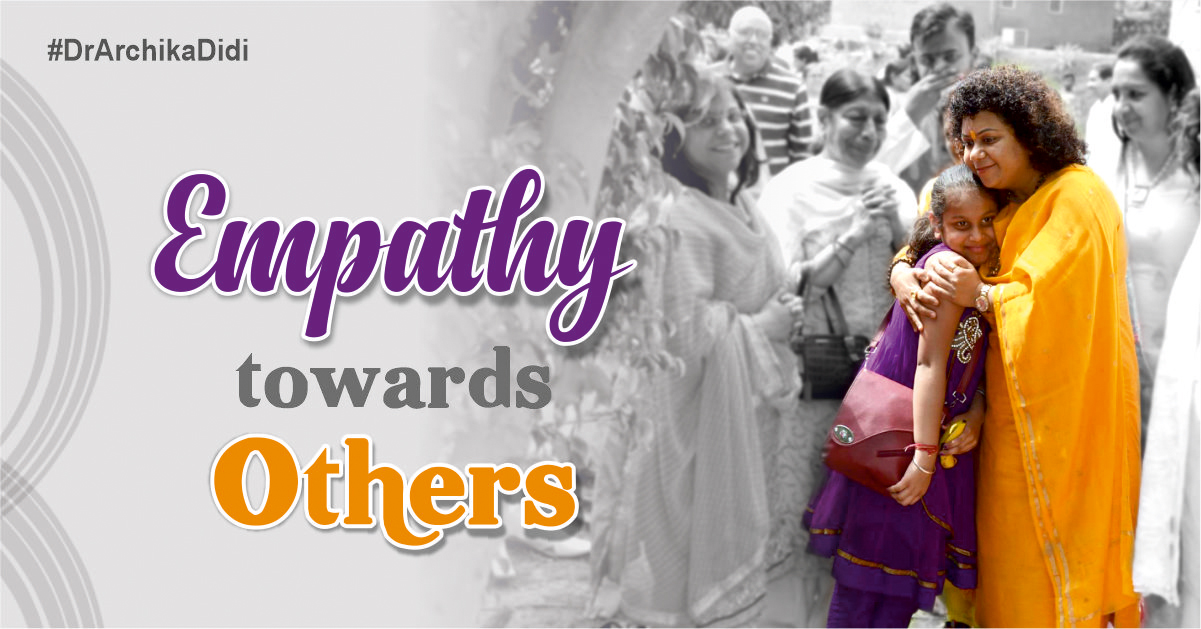Compassion versus Kindness | Dr. Archika Didi
Compassion versus Kindness
Kindness and compassion are related to human values. Both these human values are very important in society. Kindness and Compassion are two words that are often confused due to an assumed similarity in their meanings. Actually, there is some difference between the two words in terms of their meanings. In kindness, a person may feel sorry for some person but will not reflect the suffering person’s feelings. But with compassion, a person may have
the same feelings as that of the suffering person. A person having compassion will have the same feeling of happiness or sadness as that of others.
- Compassion is a feeling for someone’s suffering and wishing a speedy recovery for that person. It is the ability to feel for someone or to have the same feeling as that of someone else.
- Kindness is an act when trying to help others in need of help. Kindness is also an act of trying to help others in their difficult situations.
- When comparing compassion to kindness, the former one has a deeper and more personal feeling.
- Compassion, no doubt, is a stronger feeling than kindness.
- In kindness, a person may feel sorry for some person but will not reflect the suffering person’s feelings. But with compassion, a person may have same feelings as that of the suffering person.
Merciful attitude Towards
Kindness might be a small act of helping someone and maybe responding to their immediate needs, where compassion might require a better understanding of the whole person and what their overall needs are. Compassion on the other hand is a quality that inclines human beings to help the needy. The quality of being merciful accompanies the quality of compassion. A person that is compassionate towards the weak also shows merciful attitude towards them. It is important to note that the quality of being merciful is due to the natural pity that arises in him to help the needy.
kindness and compassion
One of the main differences between kindness and compassion is that kindness is not often accompanied by the quality of being merciful whereas compassion is always accompanied by the attribute of ‘mercy’. This is the reason why the judge reduces the punishment meted out to the accused on compassionate grounds. An important difference between kindness and compassion is that kindness is always accompanied by the attribute of ‘affection’ whereas
compassion is not often accompanied by the attribute of ‘affection’. Compassion means different things to different people. The Hindu idea of compassion, called Daya, is one of the three main Hindu virtues—the others being self-control and charity.
The importance of compassion in Hinduism extends back before 1500 BC, and is displayed in the sacred texts known as the Vedas. One of the interesting things about the presence of compassion in the Vedas is observing how the texts grew over time. In the earlier Vedas, compassion was recommended to be displayed within one’s family. However, in
the later Vedas, it is recommended that one shows compassion not only to close loved-ones, but to all of humanity. By extending compassion to every living thing, people support a common understanding that transcends species and race.
Philosophical foundation of Hinduism
This idea of showing compassion and respect for every living thing represents the philosophical foundation of Hinduism, rooted in the idea of the Brahman – or Universal Soul – which is believed to encompass the entirety of existence, threading every living being together as one. This Universal Soul, or Brahman, manifests in an individual as the Atman.
There are many expressions of Daya in the Hindu faith, and many of them are similar to elements of compassion found in Western society.These elements include service, non-harm [ahimsa], charity, grace, and social obligation.
A Hindu concept that is often interchangeable with Daya is ahimsa—the idea of living in a state of non-harm. While the exact definition of ahimsa varies from one tradition to another, the Sanskrit word is translated as “refraining from harmfulness.” Show kindness and nonviolence to all living things, including animals. Ahimsa supports the
idea of respecting all living things, as every creature is directly connected




